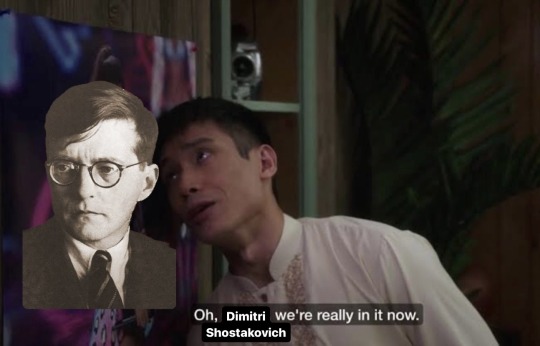#Dimitri Shostakovich
Text
Dimitri Shostakovich would've used chiptune if he was alive today.
#he wouldn't touch FL Studio ever though#music#Dimitri Shostakovich#producing#producer#classical music
2 notes
·
View notes
Text
This is a musician kinda thing, so I'll try to put it in simplier terms, but
The most horrific tempo I think I've ever seen was in String Quartet No.8 (Number 8) by Dmitri Shostakovich, very specifically Movement 2. It's whole note = 120.
Now to most people, that's nonsense, so I'll break it down. Music tends to be in quarter notes, which tend to be the beat. In most music, four quarter notes in one bar. Y'know when you clap along to music? Congrats! You found the quarter note!
Now most of the time it's around 120... but this is whole note equals 120... so 120 times four.
that is quarter note = 480, aka extremely fast. You can tell Dmitri was NOT happy writing it. But words don't tend to mean much, so I'll give examples:
2 notes
·
View notes
Text
youtube
3 notes
·
View notes
Text
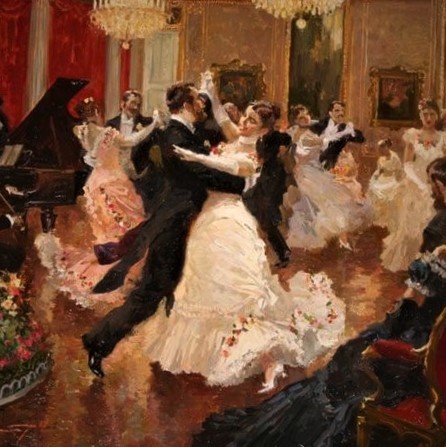
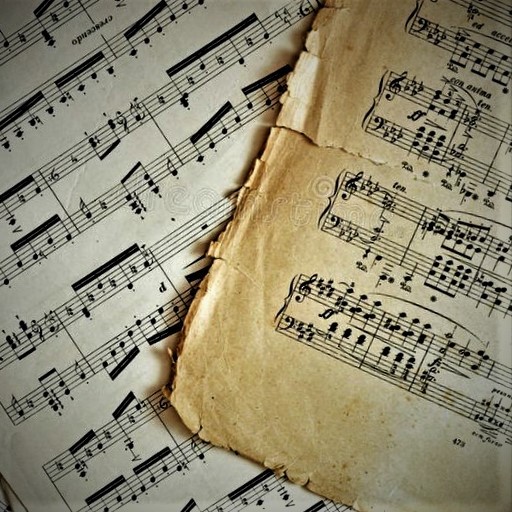
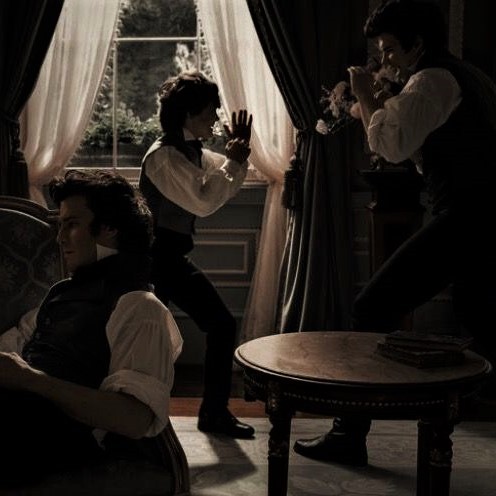
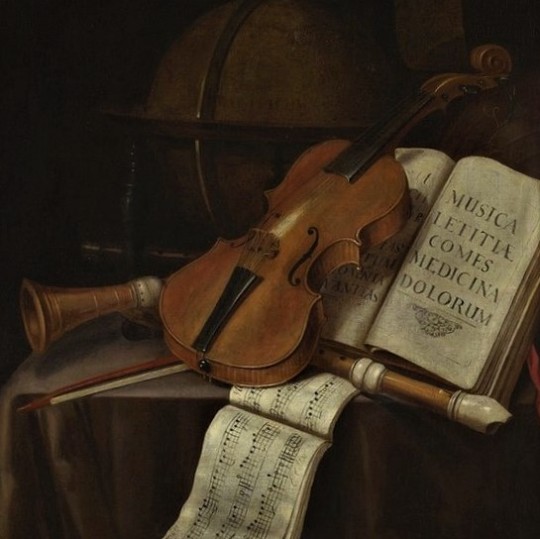

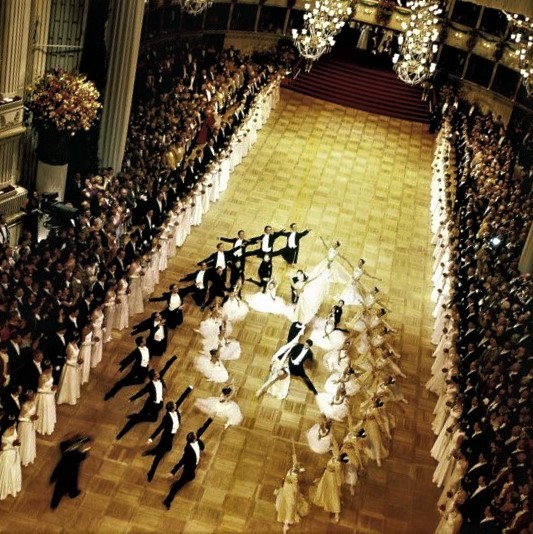
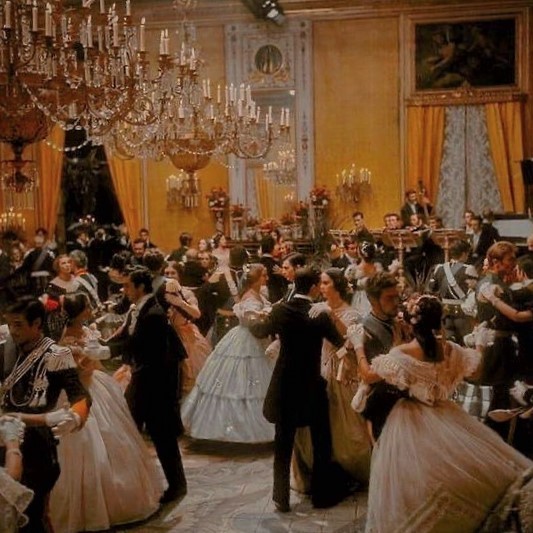
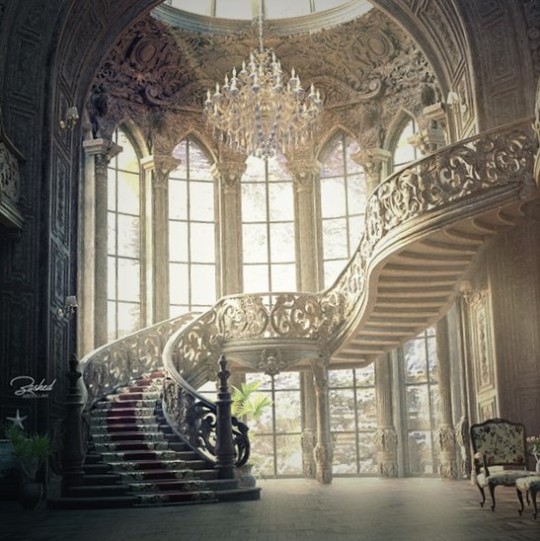

The Second Waltz by Dimitri Shostakovich
Dancing the night away with a mysterious stranger...
#moodboards#music#romance#elegance#era#gentleman#dance#stranger#song#waltz#piano#fashion#timeless#Dimitri Shostakovich#beauty#period piece#classical#classical music#masquerade#adventure#mystery#ball
2 notes
·
View notes
Text
My fave string quartet.
#shostakovich#Shostakovich String Quartet#20th century music#classical music#dimitri shostakovich#Russian Composers#Russia#USSR#String Quartet#Russian String Quartets
0 notes
Text
Dimitri Schostakovich
Dimitri Schostakovich (San Petersburgo 1906 - Moscú 1975) fue un compositor y pianista. De él recordamos las sinfonías, la óperas y por la implicaciones políticas soviéticas, pese a sus dificultades durante la purga de Stalin. Durante la Segunda Guerra Mundial enalteció el heroismo soviético en sus obras, mostrando la complejidad de la vida cultural bajo el régimen de la URSS.
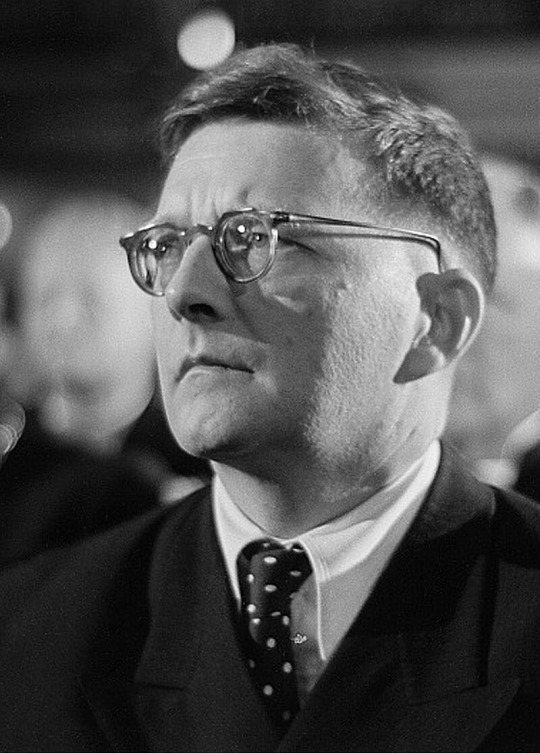
Retrato de Schostakovich (Roger & Renate Rössing, 1950)
En El Final del Camino utilizo las notas de su último cuarteto de cuerdas, el número 15, en la humilde tonalidad de mi bemol menor, para jugar con ellas construyendo nuevos universos sonoros a partir de la deconstrucción temporal, contrapuntística y harmónica.
1 note
·
View note
Text
I need to stop assigning random guitar pieces as character songs they make no sense
#the second waltz by uh who is it by actually#it’s by dimitri Shostakovich#that’s a Chip song but specifically the classical guitar arrangement of it#rambling#phever dreams with phantom#nostalgia no 3 op 19 by sageras is another kian song
3 notes
·
View notes
Text
Aziraphale & Shostakovich
The moment in the record shop when Aziraphale said he was picking up a Shostakovich record I had So Many Thoughts.
The symphony he's listening to is Symphony No.5 in D Minor, Op. 47, composed in 1937 and premiered in Leningrad to a thirty+ minute long standing ovation. Prior to this piece, Dimitri S. spent many nights sleeping in the hallway outside of his apartment so that his family wouldn't see if the government police in charge of enforcing Stalin's brutal rule came for him in the middle of the night. His last pieces had been received harshly by critics and called unpatriotic, which was just about the worst thing a composer living during The Great Terror (1936-1938) could do. Those who were not loyal to the regime and explicitly portrayed it in their art were branded as traitors and sent to gulags or were straight up executed.
The San Francisco Symphony describes the 5th symphony as "the story of a fall from grace and redemption.". Shostakovitch has gone from being a golden example to being eyed as a traitor almost overnight, the 5th Symphony becoming his redemption back into good graces.
So basically Dimitri S. was a man with contrasting ideologies to the powers that be, so to say, who was living under the threat of death, torture, or excommunication from his homeland. Haha, so weird that Aziraphale would want to listen to his music specifically.
(If you've never listened to Symphony No. 5, I highly encourage you to go listen!)
To set the scene-
From The Houston Symphony's 2018 Fighting the Barbarian Artist article on Symph. 5:
"In January 1934, Dmitri Shostakovich scored one of the biggest triumphs of his career with the premiere of Lady Macbeth of the Mtsensk District, a work official critics hailed as the first great Soviet opera. Based on a nineteenth-century novella by Leskov, it follows the misadventures of Katerina, the illiterate wife of a well-to-do country merchant who is driven to murder in order to be with her handsome but unworthy lover, the laborer Sergei. By turns satirical and tragic, Lady Macbeth explored themes of oppression with a potent combination of sex, violence and some truly beautiful music that played to full houses for two years.
Then on January 26, 1936, Stalin went to see it. Two days later, on page 3 of Pravda (“Truth”—the newspaper that continues to serve as the official mouthpiece of the Russian Communist Party to this day), Shostakovich found an anonymous review of Lady Macbeth headlined “Muddle Instead of Music.” One representative quote declared that the opera “tickles the perverted tastes of the bourgeoisie with its fidgety, screaming, neurotic music…”"
...
There is debate about if Stalin himself wrote the review to make a point, or if he just signed off on it being printed. It's also unclear if Shostakovitch was being targeted specifically, or just because of his notoriety to prove that no matter how big a name you are you're not safe if you don't fall in line, or if he was just being used as a pawn in the ongoing power struggles of the day.
Either way, he was very aware that he was in danger. A friend of Stalin's was vanished when he wrote to Stalin in defense of Shostakovitch's work after the fateful review.
The 5th was a result of Dimitri knowing he needed to get back into good graces, so he had to give them something that they wanted. Or at least something that sounded like what they wanted.
Symphony No. 5 is very sneaky in how it subverts the expectations and requirements of Stalin's Russia.
For one, it's form- a symphony is a very structured form and very Western, popularized by Beethoven and co. It's also instrumental, which allowed Shostakovitch to hide a lot of references, subversions, and musical sarcasm/critiques without the untrained critics and government officials being any the wiser.
D minor, the main tonality of the symphony, has been described by various music theorists about what kind of emotional experience it portrays. John Mattheson in 1713 described it as "Serious, Pious, Ruminating. Melancholy, feminine, brooding worries, contemplation of negativity."
However, for our purposes, Aziraphale is listening to the fourth movement, which is also the most political. (More excellent write ups about the entire work can be read here, here, here, and here. There is a PBS documentary about it here.) ((It also shifts to an ironic D Major as one point, which Mattheson describes as "Triumphant, Victorious War-Cries. Screaming hallelujah’s, rejoicing in conquering obstacles. War marches, holiday songs, invitations to join the winning team."))
The fourth movement is bombastic, letting the brass section loose right at the start. The main theme in this section is from an unpublished song that Shostakovitch had written as a setting for a Pushkin poem. The piece as a whole and specifically this movement is a direct critique of Stalin himself.
The poem?
With sleepy brush the barbarian artist
The master’s painting blackens;
And thoughtlessly his wicked drawing
Over it he is daubing.
But in years the foreign colors
Peal off, an aged layer:
The work of genius is ‘gain before us,
With former beauty out it comes.
Thus my failings vanish too
From my wearied soul,
And again within it visions rise,
Of my early purer days.
Which I think speaks for itself in what kind of mentality Aziraphale might have listening to the symphony.
I'm not sure which recording he listens to, but in the record shop we are shown that it's a record with a blue label on the disk. There are several recordings that have blue labels including the 1972 Moscow Philharmonic with Kiril Kondrashin and the 1989 Scottish National Orchestra with Neeme Jarvi. Leonard Bernstein and the NY Philharmonic have a very famous recording as well.
But I think the most likely is the 1962 Vienna Philharmonic with Constantin Silvestri. Why? Well, here's the record:

#good omens#good omens meta#aziraphale#myne posts#also shosty wore a similar style of round little glasses like a wears while listening to the record#this is a very nonexhaustive post just what i can research in a hour or so and not fall too deep down the rabbit hole lol
110 notes
·
View notes
Note
MY VOWS TO YOU of pierro x f!Reader in canon genshin universe please!!! So excited for june!!!!
Flaming bonds being tested.
Reader x Pierro
Fandom: Genshin Impact
Music: Waltz No. 2 by Dimitri Shostakovich & Priestess in the darkness musicbox+orchastra (Fire emblem)
note : Implied cursed/ khaenri’ah reader, take that into account and I just randomly puke these all out while I was bored out of my mind during a meeting.Y’all proud of me? Also I have no such thing as summer vacation 🫠 I hope you like it.
- P
"Delusions too die hard, only the savage can reign supreme in this twisted wonderland. But what say, you? Who kindled but the last light of day." - Scribe
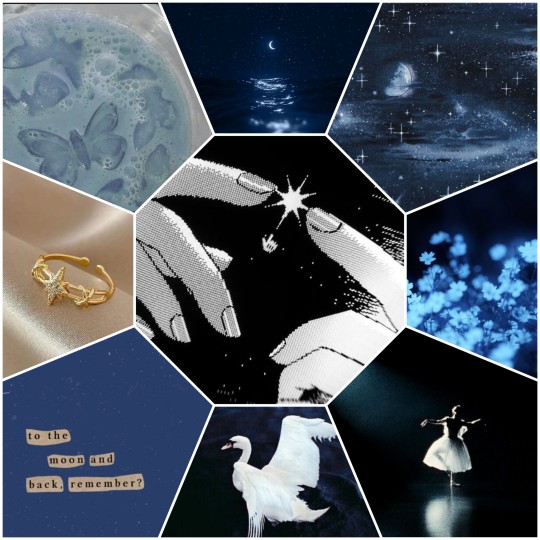
“I will lift up your sorrows,”
How many thousand suns have passed, and how many thousand moons, you must?
When did you exchange vows with one such as the man titled as your forevermore lover?
"My lady, Lord Harbinger Jester has arrived."
Jester, it does nothing to ring a bell in your mind on who that was.
"My lady, Breakfast is served." You’d rather spend the days alone, even with a cold bed to dream.
You had no recollection outside of your own name, broke away from sweet repose to this strange rozen land. The tall and small were under this Jester’s command, only a few could only withstand.
“Is it you, who have brought me here?” The bed is stale like bread, and it seems it only occupies you as the owner. Wallowing in contempt as you stare longingly out for the remainder until the blue hours come and go. You’re on the cusp of being exposed in your enclosure, frail and darkness inches closer than the ones that glances up from below.
‘Your cup will never empty,’
Upon the round table the man has laid for you, a small party he did threw.
Pierro is the name that you accrue. He had roused you from the hold of the archon, he did not dispute.
“Meister,” You heard of that title once before. Under the waking moonlight, he speaks of those that dare to oppose them with their might. Surely, what does he propose to justify his price?
“Evr’ything would come to light.” He says as if he had found the path to destroy the hand of heavenly edifice.
‘For I shall be your wine,’
Arrogance, a slow and insidious murderer. “For whom do you serve?” an inadequate query for one fittingly such as thy father. Voice hoarse from years of
“The lady of solemn promise.” he replied back, hollow and alone whisked away by the thread of fate tied to ev’rmore fractured amore.
March on the sands that strayed, from dimmed Khaenri’ah.
‘I light your way in darkness,’
Tearing, progress. You had exhausted all efforts, unplugged.
Realize your epiphany as gentle hands covet yours. Feeling the spine-chilling wind against your back.
In the past, you had recall of twin suns that sink into one, and strange black stars that soar through your scry.
Searching for dark Khaenri’ah
‘With this ring, I ask you to be mine.’
Your hand blessed once more with his soft whispers of perennial burning blue pyre.
To dine. Intruth; your fleeting light he cannot deny. Their love, shall cry, and die. In lost Khaenri’ah.
#reader insert#fatui x reader#genshin fanfic#genshin x reader#fatui pierro#pierro x y/n#pierro x reader#pierro x you#genshin pierro#my vows to you
43 notes
·
View notes
Text
friendly reminder to the two (2) other people on earth who care about harrow faire that Dimitri Shostakovich (the composer simon repeatedy references) wasn’t even born until 1906. Someone had to introduce Simon to Shostakovich because god damn it no matter how hard he tries he’s still a part of this family. Okay? I’m grabbing you by the shoulders and shaking you till you think about it.
#Harrow faire#simon#i guess this is meta posting?#I’d like to think it was hernandez maybe. Like I know they probably didn’t have a relationship before hernandez became a puppet but#Consider: what if they did
8 notes
·
View notes
Note
For the music asks, if you've time today (as I gather it's busy!)
6:A song that makes you want to dance
16:One of your favorite classical songs
20:A song that has many meanings to you
23:A song that you think everybody should listen to
6: mhhhh I'd say Ricky Martin living la Vida loca and the second waltz by Dimitri shostakovich (which also answers the 16)
16: see answer above AND one I already said once... Cello concerto No. 3 in A Major, Wq. 172 III: Allegro assai but also most songs from "la traviata" and "Aida"
20: huh oh gosh- let's see: Labour by Paris Paloma, running on a treadmill by oingo boingo, the consequence of imagination is fear by Junie and the hut friends and dead man's party by oingo boingo (again) and sadly I don't have enough time to go in depth but yeah these
23: ruthlessness from epic the musical because pleaaaaaaase aaaaaargh. But also yellow submarine by the Beatles and one from my childhood "ballo in fa minore" by angelo branduardi
6 notes
·
View notes
Text
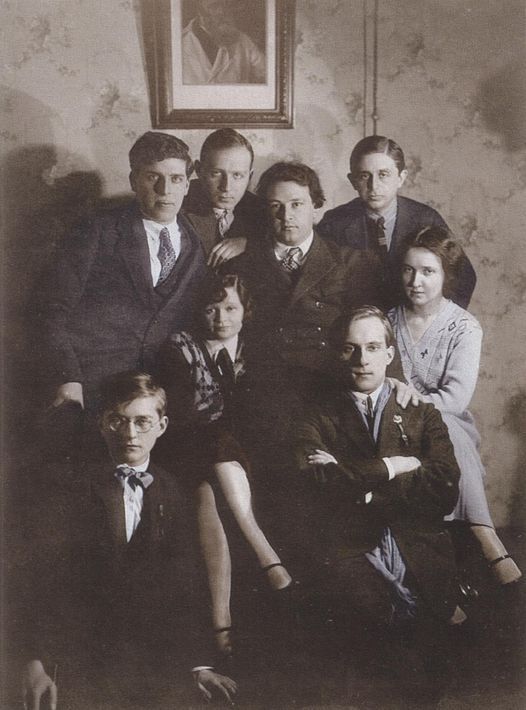
Rare image of Dmitri Shostakovich with friends in 1924. Standing (left to right): Aleksandr Kamensky (pianist), Yulian Vainkop (musicologist), Arthur Honegger (composer), Iosif Shillinger (composer / theoretician). Sitting (left to right): Dmitri Shostakovich, Aleksandra Bushen (musicologist), Aleksandr Smirnov? (theatre critic), and Andrée Honegger (wife of Honegger, pianist).
From: Memoirs - Pages From the Life and Works of Fedor Druzhinin Credit: Association Internationale 'Dimitri Chostakovitch'.
16 notes
·
View notes
Text
ah yes my favorite composers
claude debussy

dimitri shostakovich

(hilda)gard von bingen

gustave holst

frederick chopin

louise farrenc

and let's not forget
ludwig von beethoven

#this is just a silly joke lol#sorry for the shitpost#i would like to formally apologize to the real beethoven
34 notes
·
View notes
Note
🎶Hiiii! Tell me of 5 songs you'd currently recommend, then send this to 5 mutuals :D🎶
hmmmmm.... so many to choose from haha. I'm gonna try to be more casual about this so I don't end up overthinking it :)
"There is a time" by The Dillards
"madhouse" by Matt Maltese
"Sit with the Guru" by Strawberry Alarm Clock
"The Adults Are Talking" by The Strokes
"Piano Concerto No. 2: II. Andante" by Dimitri Shostakovich (reaaally get into it it's one of my favourites, so fucking beautiful. It's always a wow experience for me)
Hope you're doing well :D
6 notes
·
View notes
Text
youtube
Dimitri Shostakovich
‘String Qt No.15 I. Elegy’
3 notes
·
View notes

